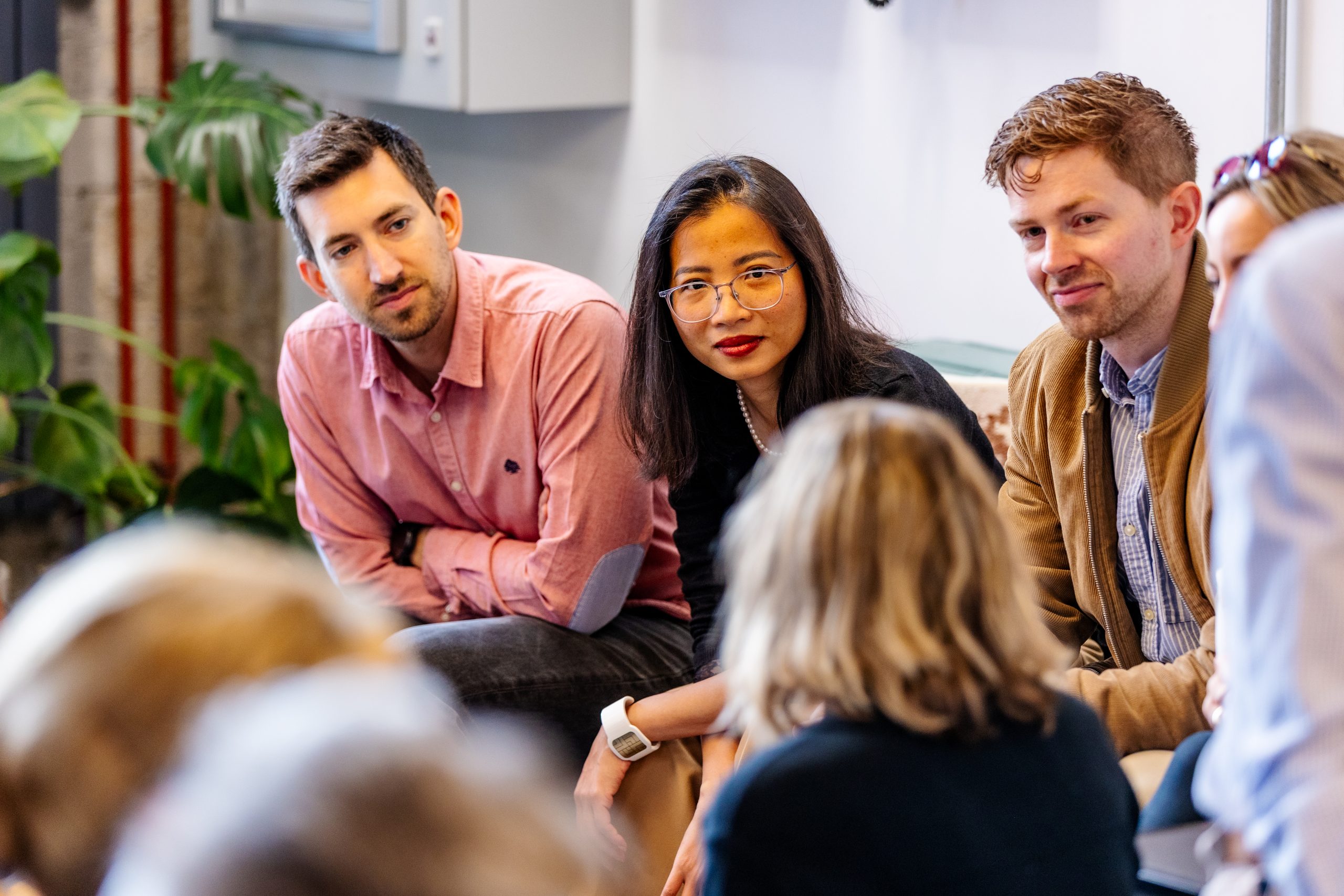Inside a techSPARK meetup that tackled creativity, critical thinking — and what we might be outsourcing to machines.
At a recent techSPARK AI meetup in Bristol, the conversation turned away from the usual talk of tooling, scaling, or funding, and towards a quieter question: what are we actually losing as we rely more on AI to do the heavy lifting in our working and thinking lives?
Jim Morrison — founder of a startup using AI to make sense of the 24/7 news cycle — opened with a question that set the tone: are we thinking less because AI is thinking for us? And if so, are we noticing?
Morrison isn’t anti-AI. He builds with it daily. But his concern is that we’re leaning on it in ways that erode our creative and cognitive muscles. Referencing studies from Harvard and the University of Montreal, he walked the room through how tools like predictive text and GPS don’t just help us — they subtly shape us. Writers become flatter. Navigators lose their sense of direction. Coders rely on auto-fix and stop debugging for themselves.
What’s at stake, Morrison argued, isn’t just output. It’s the development of deep thinking — the slow, sometimes frustrating process that underpins true creativity and problem-solving.
The habits we build
The discussion quickly moved beyond theory. One attendee described inheriting a junior hire who couldn’t think independently and expected praise for content that was clearly AI-generated. Another pointed out the impact of generative tools that are programmed to be endlessly positive — giving users the illusion that mediocre output is great work.
What emerged was a shared concern that we’re not just adopting AI; we’re building new habits around it — habits that may prove hard to reverse.
Critical thinking: a skill, or a privilege?
There was also a sharp undercurrent about equity. As Morrison noted, if schools aren’t teaching critical thinking — and if tech does the hard parts for us — it risks becoming a skill only available to those with time, guidance, or contrarian instincts. “It becomes the hobby of the privileged,” he said.
One participant asked whether we’re headed for a split between people who opt out — choosing a slower, less automated life — and those who become entirely dependent on the tools around them. The room didn’t land on a clear answer, but the question stuck.
Prompting ≠ thinking
There was debate, too. One attendee argued that good prompt writing is itself a form of creativity — and that the next generation may simply get better at engaging with AI critically. Morrison agreed, to a point. But he pushed back on the idea that fast prompts can replace the kind of deep, hard-won thinking that leads to real insight.
“Using AI to help produce something is one thing,” he said. “Using it to avoid thinking altogether is another.”
Not anti-tech — just pro-awareness
No one in the room seemed nostalgic for long division or offline maps. But there was a shared sense that we may be sleepwalking into an era where thinking — deep, original, critical thinking — is no longer seen as essential. If AI can draft the article, write the contract, or answer the brief, do we still need to understand how any of it works?
The takeaway wasn’t doom or hype. Just a reminder: some kinds of intelligence can’t be delegated.
If you weren’t in the room, you didn’t miss a product demo or a panel of AI optimists. You missed something rarer — an honest, curious, and occasionally uncomfortable conversation about where we’re heading. And what we might forget along the way.
Jim Morrison runs Nourish, Smart News and you sign up for his daily newsletter here –

